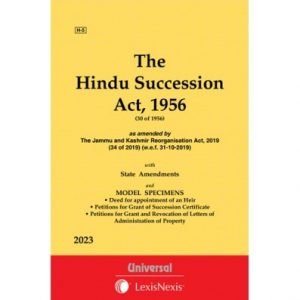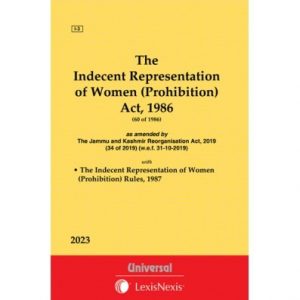Laws for Women in India: An Overview

India has an extensive history. Throughout the centuries its legal system has transformed to reflect the evolving social and cultural dynamics. However, women have historically faced disadvantages, under law. Unfortunately, some of the existing laws for women in India, continue to be discriminatory and detrimental. There has been a movement aimed at reforming Indian law to ensure fairness and equality for women. This movement has achieved progress in bringing about a lot of changes. Nevertheless, there still remains a lot of work to be done ahead. This article aims to provide an overview of the status of women’s rights in India and the laws for women in India in place, to protect them.
Rights of Women in India
Right to Maintenance:
Every married woman has the right to receive support, or in legal terms, maintenance from her husband even if they are not living together. This right is protected by laws for women in India such as, the Hindu Marriage Act, 1955 (HMA) and the Protection of Women from Domestic Violence Act, 2005 (DVA). As, per Section 24 of the HMA either the wife or husband can seek monetary assistance. To be eligible, for this support the petitioner must show that they do not have a source of income to support themselves.
Right to Equal Pay:
One of the most important labour rights is the concept of equal pay for the same amount or equal amount of work done. In India the Equal Remuneration Act of 1976 (ERA) is the primary law that ensures both male and female workers are paid equally for doing work which are the same for both. The ERA also prohibits discrimination, against women based on gender in employment related matters like recruitment and promotion.
Right to Dignity and Decency:
Every woman should lead a life of respect, equality and decency, free from any form of fear, force, violence or discrimination. According to Article 21 of the Constitution every citizen, including women is entitled to the right to life and dignity. Section 354A of the Indian Penal Code criminalizes harassment. The Sexual Harassment of Women, at Workplace (Prevention, Prohibition and Redressal) Act, 2013 establishes a framework for women to report incidents of harassment in their workplace and seek measures to address them.
Right against Domestic Violence:
Some or the other day, it’s always in the news that a daughter, wife, daughter-in law faces harassment and abuse, not only sexual but physical and mental too. DVA provides protection of women from domestic violence. If any woman suffers such abuse and violence, section 12 of DVA becomes applicable.
Rights at Workplace:
Each and every woman is entitled to a work environment that’s safe and conducive, to their well-being. It is crucial that they are free from any form of discrimination or harassment. The Constitution along with legislations such as the Equal Remuneration Act of 1975 the Maternity Benefit Act of 1961 and the Sexual Harassment of Women at Workplace (Prevention, Prohibition and Redressal) Act of 2013 guarantees these rights to women.
Right against Dowry:
Lots of women are not able to get married because of unnecessary dowry demands from the other side. The Dowry Prohibition Act, 1961 prohibits the dowry system, i.e. both, the giving and taking of dowry. Every woman in this country has the right to be free from dowry demands, harassment and abuse.
Right to Free Legal Aid:
Where a woman cannot pay for her legal support, she will have the opportunity of attaining it free of charge. Under the Legal Services Authorities Act, 1987, this is regarded as a right. The Legal Services Authorities Act provides for establishment of legal services authorities at the central, state and district level.
Right to Self-Defence:
Under Section 100 of the Indian Penal Code (IPC), every person, including a woman has the right to protect her body from any violence, attack or assault which can lead to apprehension of death, grievous hurt, kidnapping etc.
Laws for Women in India
In India there are laws that safeguard the rights of women, in aspects such, as family matters, criminal offenses, employment conditions and property ownership. Our constitution provides rights to ensure the protection and progress of women. In this section of the article we will delve into the laws that protect women in India.
The Protection of Women from Domestic Violence Act, 2005
Protection of Women from DVA, 2005 is one of the key Acts and laws for women in India meant for protecting women who are oppressed by domestic violence. The law provides for strict legal actions against husbands that harass, abuse and maltreat women in their own houses. The law strives to provide protection orders, residence orders, as well as monetary relief, which is meant to secure their safety and general wellbeing.
Protection of Women from Domestic Violence Act, 2005 along with Rules, 2006

This bare act by Universal and Lexis Nexis covers all aspects of the law and contains both the Act and subsequent rules together. It is a must read for lawyers, students and people dealing in family matters.
The Dowry Prohibition Act, 1961
The main intention of the Act was to stop the menace of dowry in India. It completely prohibited the giving and taking of dowry. It also aims to protect woman who want to get married but aren’t able to because of frivolous dowry demands from the prospective groom’s side. However, still there are a lot of cases surrounding dowry and it has been very difficult to enforce this law because of the huge population of the country and cases not being filed due to fear.
The Sexual Harassment of Women at Workplace (Prevention, Prohibition, and Redressal) Act, 2013
It deals with sexual harassment of women at the work place. It provides a legal basis that will help curb any such harassments and protects women, hence creating a safe and fair working atmosphere free from sexual harassment of women and their abuse. The Act mandates establishing of internal committees and POSH Policy for addressing complaints and prompt redressing of the cases.

Sexual Harassment of Women at Workplace (Prevention, Prohibition and Redressal) Act, 2013
This latest (2023) edition of the bare act by Universal and Lexis Nexis comprehensively covers the act and its subsequent rules. It is a must read for lawyers, HRs and people working in companies and organisations.
The Medical Termination of Pregnancy Act, 1971
In India, termination of pregnancy is regulated under the Medical Termination of Pregnancy Act, 1971 (MTP Act). Under this act a woman is allowed to end her pregnancy within 20 weeks if it’s essential, for preserving her life poses a risk to her physical or mental wellbeing or if the pregnancy resulted from rape.

Universal and Lexis Nexis’s bare act on Medical Termination of Pregnancy Act, 1971 along with Rules and Regulations contains the Act, as well as the 2003 rules and regulations which is an ideal reading material for those who want to learn the law.
The Maternity Benefit Act, 1961
It is difficult for working mothers to work during childbirth and in pre-child birth stage. Hence, the Maternity Benefit Act, 1961 was established. The Act mandates for a minimum of 12 weeks of maternity leave to mothers. In the 2017 Amendment, this was increased to a maximum of 26 weeks.

Universal and Lexis Nexis’s Bare Act on Maternity Benefit Act, 1961 is an ideal guide for practitioners, students and the like because it contains all the recent amendments and rules & regulations.
The Equal Remuneration Act, 1976
The Equal Remuneration Act, 1976 (ERA) provides for a gender non-discriminatory and equality based legislation that mandates that men and women both should be paid equal remuneration for the same or equal work that they do, thus providing them with equal benefits and economic opportunities at work.

Universal and Lexis Nexis’s Bare Act on Equal Remuneration Act (ERA), 1976 which has been repealed by the Code on Wages, 2019 contains in it all allied rules and regulations.
The Prohibition of Child Marriage Act, 2006
This act also seeks to prevent forced marriages that involve minors, so as to safeguard their rights. It aims to guarantee that girls are allowed to mature, educate themselves and be able to make wise choice concerning their lives and marriages which in turn secures their health and wellbeing. However, it has been quite difficult to enforce this law in many parts of the country due to customs and traditions.

The Prohibition of Child Marriage Act is a Landmark legislation and Universal and Lexis Nexis’s bare act cover all bases of the laws properly.
The Hindu Succession Act, 1956
The Amendment Act, passed in 2005 known as the Hindu Succession (Amendment) Act, 2005 granted daughters rights to property in joint families. This change ensured that both men and women are treated as beneficiaries when it comes to inheriting property.

Hindu Succession Act, 1956 bare act by Universal and Lexis Nexis give it a new life by including model specimens of Deed for appointment of an Heir, Petitions for Grant of Succession Certificate, Petitions for Grant and Revocation of Letters of Administration of Property
The Indecent Representation of Women (Prohibition) Act, 1986
The act mandates that there can be no indecent representation of women in any form- whether print, media, advertisements. It strives to protect the dignity and decency of women and promotes respect towards women.

Universal and Lexis Nexis’s bare act on The Indecent Representation of Women (Prohibition) Act, 1986 covers the laws and the rules respectively.
The National Commission for Women Act, 1990 (NCW)
The (NCW) was formed in 1990 through the enactment of the NCW Act. Its primary objective is to safeguard and advance women’s rights in India. The NCW actively tackles matters concerning gender-based discrimination, violence, against women and various violations of women’s rights.

One of the most important bodies for protection of women and the National Commission Acts Bare act by Universal and Lexis Nexis covers all allied laws -Women Act, 1990, Minorities Act, 1992 etc., hence an ideal read for all stakeholders.
Conclusion
India has a range of provisions and laws for women in India, that safeguard their rights across various aspects of life such, as criminal offenses, family issues etc. These laws have played a role in shielding women from discrimination and violence while fostering gender equality. However certain obstacles persist in implementing these laws. These challenges encompass a lack of awareness, societal and cultural norms as weak enforcement mechanisms. It remains imperative to continue our efforts in addressing these issues and ensuring that every right and law for women in India can be exercised by them without fear of violence.
FAQs
- What is the law and status of women in India?
The laws for women in India are many, like Domestic Violence Act, Equal Remuneration Act that protects as well as provides opportunities to women
- Do women have equal rights in India?
Yes, women have right to equal remuneration for the same/equal work done by both men and women.
- What are the main women rights?
Main women rights are right to Dignity and Decency, Right against domestic violence etc.
- What is property right of women in India?
After the Hindu Succession Amendment Act, women now have rights over ancestral property.
- Who is the first women in law in India?
India’s first woman lawyer is Cornelia Sorabji.

